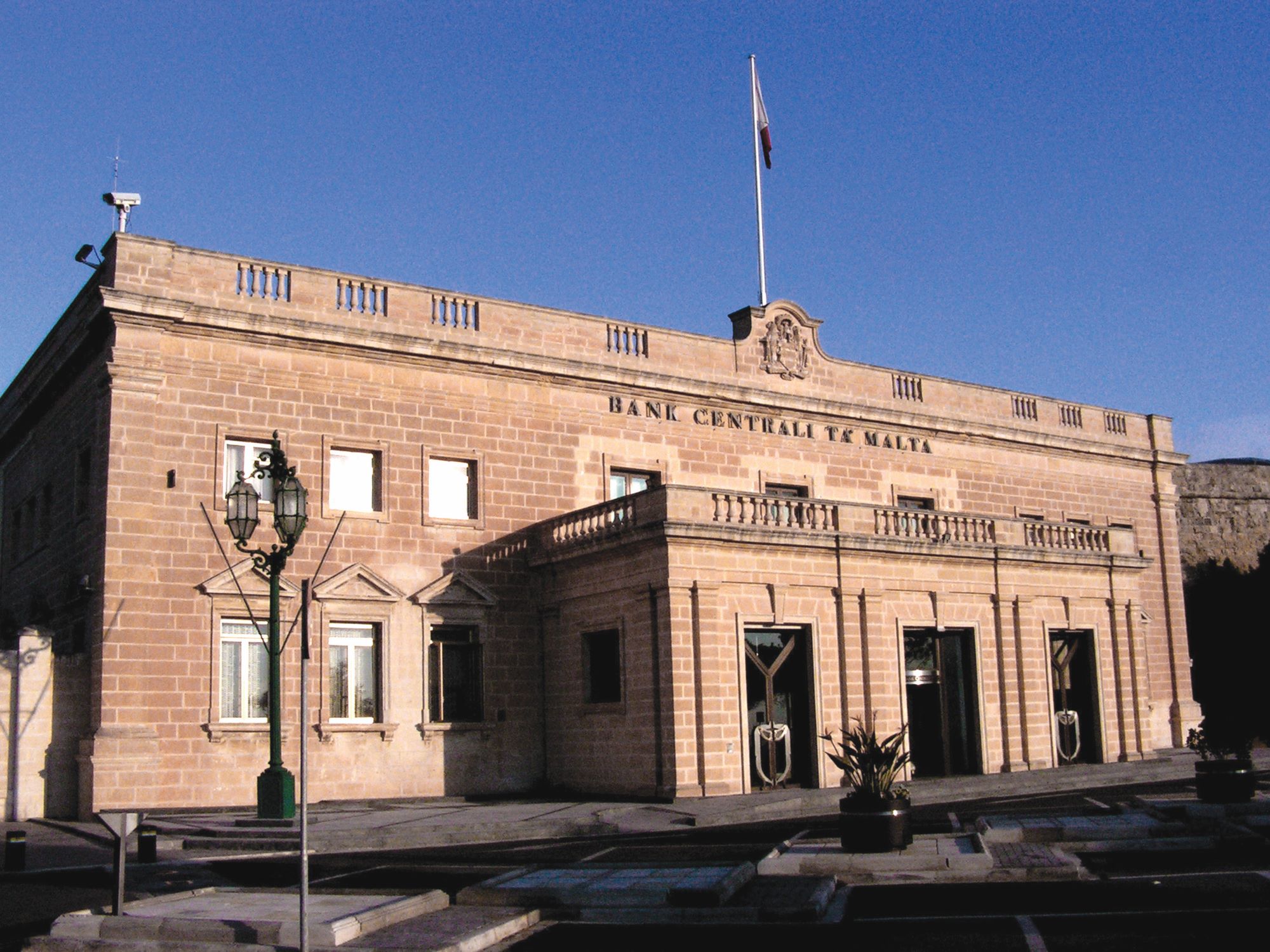Malta’s economy is set to continue its post-pandemic rebound by generating strong GDP growth of six per cent in 2022, according to the Central Bank of Malta (CBM), largely on the back of strong domestic demand and exports.
Inflation is also projected to increase to 2.7 per cent – the highest level seen in years – as supply chain pressures raise import prices across all economic sectors.
In its outlook for the Maltese economy between 2022 and 2024, the CBM said it expects Malta’s gross domestic product (GDP) to grow by 5.3 per cent in 2023 and by 3.8 per cent in 2024.
Compared to the Bank’s earlier projections, the level of GDP in 2022 is being revised upwards due to an estimated 1.2 percentage point higher growth in 2021. Pre-pandemic economic activity levels would thus have been attained earlier than projected in the bank’s previous projections exercise.
Consequently, the GDP growth rate for 2022 is being revised down by 0.5 percentage points. No substantial revisions have been made to the subsequent two years.
In 2022, domestic demand is expected to be the main driver of growth, reflecting strong growth in private and government consumption, said the CBM. In addition, net exports are projected to also contribute strongly this year, as exports accelerate, while imports are projected to grow at a slower pace. The slowdown in imports in turn mirrors the expected drop in investment in 2022, following exceptional outlays in certain sectors in 2021.
In the following years, domestic demand is envisaged to continue leading the expansion in economic activity, reflecting especially a foreseen strong contribution from private consumption. At the same time, the contribution of net exports is projected to remain positive, reflecting the gradual normalisation of tourism activity and continued growth in foreign demand generally.
Employment growth is set to accelerate to 2.6 per cent in 2022 in view of the continued growth in economic activity. It is then set to slow down in the following two years. The unemployment rate is set to stand at 3.5 per cent by 2022 before returning to 3.6 per cent in 2023 and 2024.
At the same time, labour market tightness is expected to gradually moderate as net migration flows pick up over the projection horizon. This is expected to alleviate wage pressures.
Annual inflation based on the Harmonised Index of Consumer Prices is set to rise to 2.7 per cent in 2022, up from 0.7 per cent in 2021, largely reflecting the impact of import price pressures on all subcomponents of inflation except energy. Import price pressures are then envisaged to ease somewhat and hence, inflation is set to decelerate to 1.8 per cent by 2024.
The general government deficit is expected to narrow substantially over the remainder of the forecast horizon as COVID-19 measures unwind and macroeconomic conditions improve further. By 2024, it is forecast to narrow to 3.3 per cent of GDP. On its part the general government debt-to-GDP ratio is projected to stand at 60.9 per cent of GDP in 2024.
Risks to economic activity over the medium term are judged to be balanced, with some downside risks in the short-term, when the pandemic could further weaken tourism exports more than anticipated in the baseline, the CBM said.
Moreover, a prolongation of supply bottlenecks could adversely affect manufacturing activity and domestic demand, with higher than projected inflation. On the other hand, a faster decline in the saving ratio could lead to faster than expected growth in economic activity over the medium term.
With regards to inflation, risks are on the upside during the entire projection horizon. In particular, if supply bottlenecks and disequilibria between demand and supply persist, more firms might be constrained to raise selling prices, which in turn could trigger higher wage demands.
Risks to public finances mainly affect 2022 and are deemed to be deficit-increasing. In particular, these risks relate to the likelihood of additional COVID-related support and the impact of Air Malta’s restructuring on the likelihood of State aid to the airline.
Government introduces mandatory physical inspection for vintage vehicle classification
From 1st September 2025, vehicles seeking vintage status must undergo a physical inspection by the official classification committee
Local filmmakers paid just €250 to screen at Mediterrane Film
The figure stands in stark contrast to the estimated €5 million total spend
Malta International Airport closes in on one million passengers in June
Meanwhile, aircraft traffic movement rose by 4.5 per cent year on year






